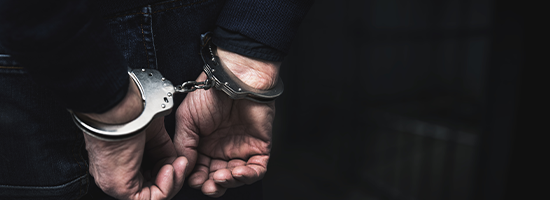
Pennsylvania Expands Its Clean Slate Law
It is never easy for those charged with or convicted of crimes, even misdemeanor offenses, to avoid having a criminal record follow them. It negatively affects personal relationships, education and employment opportunities, and even housing. Pennsylvania’s Clean Slate Law is designed to provide relief.
Since July 2019, more than 36 million criminal records have been sealed under the law. In 2020, state lawmakers offered additional relief by expanding it. The expansion came at a uniquely critical time with the financial crisis caused by the global pandemic.
At Marc V. Taiani, Esquire and Allegheny Attorneys at Law, P.C., I am dedicated to representing those charged with crimes in Pittsburgh as well as Shaler, Ross, O’Hara, Indiana Townships, Fox Chapel, Penn Hills, Oakmont Borough, Aspinwall, and throughout Pennsylvania. I am fully committed to helping those who are entitled to post-conviction relief under the law.
What Is Pennsylvania’s Clean Slate Law?
Pennsylvania’s original Clean Slate Law, signed into law in 2018, automatically seals the criminal records of those charged with or convicted of certain crimes who have committed no crimes for at least 10 years. They must also have paid all court-ordered obligations such as fees, fines, and restitution before their records could be sealed.
Those convicted of some, but not all, first-degree misdemeanors may qualify to petition the court to seal their records under the related Act 5.
Once their records are sealed, people can respond “no” to the question of whether they have a prior criminal conviction. Having that ability helps them overcome challenges with employment, housing, and more.
What Changes Were Made to the Law?
House Bill 440 removes the requirement in the original Clean Slate Law that all court-ordered financial obligations be paid before records are sealed. The exception is restitution. If it was ordered, it must be paid in full. House Bill 440 removes the financial penalty that kept millions of records unsealed that would otherwise qualify.
The revised law also expanded automatic expungement of the records of those who received a full acquittal for charges, as well as having records automatically sealed for those pardoned by the governor.
Who Is Eligible for Relief?
The following records qualify for relief under the law:
Those who were charged with crimes but not convicted
Those convicted of summary offenses
Those convicted of second- and third-degree misdemeanors
Those convicted of misdemeanors with penalties of two years or less in prison
Those convicted of crimes involving firearms, danger against other people, and crimes against families are not eligible, nor are those convicted of felonies and certain repeat offenders.
Rely on Experienced Criminal Defense
Even a criminal charge that never resulted in a conviction, or a conviction for a summary offense such as shoplifting or disorderly conduct, can haunt you for the rest of your life. If you are facing criminal charges, you should consult an experienced criminal defense attorney. Working with a lawyer who can help you get charges reduced under the Clean Slate Law will help you in the future, even if you currently face a conviction.
If you believe you qualify for relief under Pennsylvania’s Clean Slate Law, consult with a criminal defense attorney to verify that the records of eligible charges and convictions have been automatically sealed. If your conviction does not qualify under the Clean Slate Law, you might still qualify for relief under Act 5 or expungement. Your life can change for the better with the sealing or expungement of a criminal record, so take advantage of it. Reach out to me at Marc V. Taiani, Esquire and Allegheny Attorneys at Law, P.C., in Pittsburgh to begin exploring your options.
